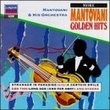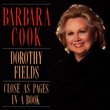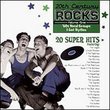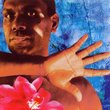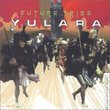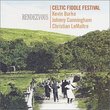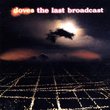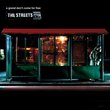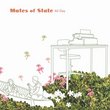| All Artists: Norman Blake, Nancy Blake, Tut Taylor Title: Shacktown Road Members Wishing: 3 Total Copies: 0 Label: Western Jubilee Recording Company/Plectrafone Records Original Release Date: 1/1/2008 Re-Release Date: 1/23/2007 Genres: Country, Folk, Pop Styles: Bluegrass, Classic Country, Traditional Folk Number of Discs: 1 SwapaCD Credits: 1 UPCs: 803020125629, 824761125624 |
Search - Norman Blake, Nancy Blake, Tut Taylor :: Shacktown Road
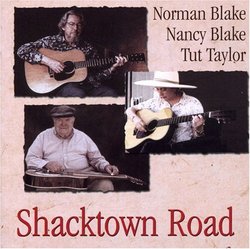 | Norman Blake, Nancy Blake, Tut Taylor Shacktown Road Genres: Country, Folk, Pop
It's been 35 years since Tut and Norman, along with Vassar Clements joined John Hartford on the legendary Warner Brothers recording, Aereo-Plain. This is the first recording for old friends Tut & Norman, who along with... more » |
Larger Image |
CD DetailsSynopsis
Product Description It's been 35 years since Tut and Norman, along with Vassar Clements joined John Hartford on the legendary Warner Brothers recording, Aereo-Plain. This is the first recording for old friends Tut & Norman, who along with Nancy Blake preserve wonderful memories and long-held traditions on Shacktown Road. The eighteen selections of old timey music are reminiscent of Moon Pies and Nehi soda; resophonic sounds, songs and stories from the South. They recorded in the small house of Jens & Uwe Kruger near Wilkesboro on Old Highway 60, just up the way from Shacktown Road. Similar CDsSimilarly Requested CDs
|
CD ReviewsA charming album full of simplicity, sincerity, and reality J. Ross | Roseburg, OR USA | 02/04/2007 (4 out of 5 stars) "Playing Time - 57:51 -- Between Norman, Nancy, Tut and the three other musicians on this album (Uwe Kruger, Jens Kruger, Joel Landsberg), there are 18 different instruments played. There are many guitars and mandolins, most of them dating to the early 1900s. There are newer instruments hand crafted by Taylor's son, Mark. There's also a mandola, cello, bass, banjo, and accordion at times. The liner notes are remiss in not providing better song-by-song credits, and Tut Taylor is the only musician credited with vocals. Slight oversights and imperfections aside, "Shacktown Road" is really more about a humble attitude towards the threesome's musical heritage ....their vision to document a "wonderful period in our lives" in sepia tone. Recorded in a little old house that the Kruger Brothers were using for a temporary studio, the songs are part of an adventurous and rustic repertoire that have characterized their musical journeys over the decades. Besides simply calling it a "thing," Norman Blake refers to it as a "full circle trip" and "a historical piece of art" with the unique elements of "Blues, Mediterranean, Greek and Funky, Raw, Southern Country." Probably only somewhat scripted, it would be interesting to know how this set came together other than as an idea for the three to collaborate again since the days of their 1970s seminal hit record, "Aereo Plain" (with John Hartford and Vassar Clements). Undoubtedly, the group demonstrates their continuing respect for traditional music and the values it imparts. The enjoyment and lessons we learn today from the older music may be, in part, a reason for its latest revitalized resurgence. Thus, "Shacktown Road" gives us rustic voices singing bucolic sentiments, and seasoned fingers playing antique instruments. While some of the countrified songs are brawnier than others, there's ample purity and honesty throughout. The charm of a project like this is its simplicity, sincerity, and reality. More than just picking and singing together, these friends transport back to another era where the seeds of their music were planted. And musicians (and reviewers too, for that matter) didn't take themselves so seriously then either. In Taylor's narrative opener, the stage is set for the music ahead that grows in as many directions as the kudzu vines-- "Have you ever been down to Shacktown? Where they lay around all day? Eating them chocolate moonpies, and Listen to the radio play." Including some snippets of actual Bill Monroe recordings that Tut made on an old Philco radio disc recorder in the 1940s (pictured in the CD's jacket), we're not totally clear what lays ahead in this nearly hour-long set. But it doesn't take long to realize that we should just imagine ourselves sippin' soda and listening to some front porch pickin' at Joe Brown's Shacktown store. With as many flavors as the Nehi soft drinks of the period, "Shacktown Road" will certainly help you find a favorite refreshing drink in your favorite flavor. The Nehi Blue Cream is the recommended beverage for pieces like "Worried Blues," "Lizzie Hubbard Blues," "It Must Be Jelly," and "Steel Guitar Blues." Apparently recorded live, the former has a few vocal shortcomings that probably should've been fixed. Lizzie Hubbard was a black lady near Possum Trot, Ga. who delivered babies, and she delivered Tut in 1923 in return for a "mess of collard greens." For a different flavoring, grab a cool Nehi Ginger Ale to whet your appetite for more of Norman and Nancy's duet singing on "Going to Georgia, " "Not a Word from Home," and "On the Banks of Lake Pontchartrain." The latter relates the story of the flooding of New Orleans during Hurricane Katrina. "Guitar Rag" relates a short story of encountering a man with a National slide guitar who taught the tune in exchange for a quarter. "The Old Dobro Man," "Running Wild," and "End of the World" are relaxed, leisurely melodies that pair up Tut's resophonic guitar with Nancy's cello (from Independence, Mo., she was classically trained and met Norman while playing in the Nashville Youth Orchestra in the early 1970s). In the reflective closing number, "The Buffalo Left Yesterday," a little extra fizz is imparted with Jens Kruger's accordion seasoning. A Nehi Peach might be the beverage of choice to wash down the folkstral flavorings of "Kindred Spirit" and "Tom Scala's Waltz." Here and there, we hear tints of the Blakes' `chamber bluegrass' sound that made their Rising Fawn String Ensemble so popular. The bark from one of Tut's best friends, his terrier named Bascom, kicks off the instrumental "Ode to Bascom." If some cute lyrics had been written to match, this catchy little tune could become a children's favorite covered by Raffi and his gang. A favorite little mandolin/guitar ditty is "The Tag Railroad Rag," a tune also released in 2001 on Norman's "Flower From the Fields of Alabama" album. A little mandolin pick noise on the fingerboard provides a slight distraction. In the traditional "Times Ain't Like They Used To Be," Norman renders a heartfelt solo recollection of the good ol' days when he was a brakeman on the southbound train headin' for where he came from. While born in Tennessee, he grew up far out in the country (Sulphur Springs, Ga.) near the Georgia/Alabama line where the biggest happenings around town were the train depot, the steam, and the colorful locomotives. In 2008, Norman turns 70, and Tut turns 85. Like that ol' vintage Philo radio, these songcarriers still tune in and play an authentic and nostalgic style of yesteryear's endearing music. There might be a little static in that old radio in Shacktown, but no one seems to care much when they gather around the box for a listen on Saturday night. Wouldn't it be great for the music if every little community gathered to pick, grin and re-create Shacktown on Saturday nights! (Joe Ross, staff writer, Bluegrass Now) " Take a Journey to Shacktown Road Steve Vrana | Aurora, NE | 06/06/2007 (4 out of 5 stars) "Beginning with the first track, "Shacktown Road," you know this is going to be a musical journey through old blues, country & western, and old timey string band music. Along with personal reminiscences on the opener, Tut Taylor also plays snippets of actual recordings (including Bill Monroe performing "Molly and Tenbrooks" at the Grand Ole Opry on radio station WSM) made on his old 1940's floor model Philco radio that included a built-in recording unit. It sets the tone for the rest of the album.
It's a mostly laid back affair. After all, Norman Blake is 68 and Tut Taylor is 82. It also marks the first time these two have played together in years. [Taylor's recollection in the liner notes says it's the first time since John Hartford's 1971 AEREO-PLANE (but I have a vinyl copy of Taylor's 1975 THE OLD POST OFFICE which features Norman).] In addition to Taylor playing the Dobro (which he plays with a flat pick!), he also plays mandolin. Norman plays guitar, mandolin, and Hawaiian guitar. They are joined by Norman's wife Nancy who plays cello, mandolin, mandola and guitar. Many of the tunes are traditional like the instrumentals "Guitar Rag" and "Steel Guitar Blues" and the familiar "Worried Blues," with Norman handling the vocal. The Tut Taylor originals include instrumentals like "Lizzie Hubbard Blues" and "Ode to Bascum," the latter dedicated to Taylor's dog of the past twelve years. Norman wrote a pair of tunes, the lovely mandolin-driven "Tom Scala's Waltz" and the bouncy "The Tag Railroad Rag." In the liner notes, Taylor says, "It was once said that young men have visions and old men have dreams." With Tut, Norman and Nancy playing in the background, these are pleasant dreams indeed. [Running Time - 58:03] HIGHLY RECOMMENDED" |

 Track Listings (18) - Disc #1
Track Listings (18) - Disc #1